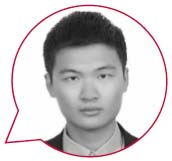 For those who like
For those who like
- Mathematics applied to practical problems
- Statistical learning
- Signal processing
Objectives
Upon completion of this track, students will have a broad and operational perspective of statistical learning and signal processing. They will understand the issues surrounding data processing and big data, the methodological foundations (statistics, optimization) and techniques for processing temporal data in particular (signal processing).
In practice
The teaching prioritizes rigorous lectures and practical work in realistic conditions.
Language of instruction: English
After the track
3rd year technological innovation at Télécom Paris
Master’s-Engineering Dual Degree
- Automation and Signal and Image Processing (Univ. Paris-Saclay)
- Data and Artificial Intelligence (IP Paris)
- Data Science (IP Paris)
- Mathematics, Vision, Learning (IP Paris/Univ.
Paris-Saclay) - Acoustics, signal processing and computer
science applied to music (Sorbonne Univ.) - Bio-Imaging (Univ. Paris-Cité, Biomedical specification)
Professions
The track trains future engineers who will have a wide range of skills in the area of statistical learning (machine learning) and signal processing, which cover numerous fields of application: music and speech, biosignals, radio astronomy, transmission and compression of multimedia information, etc.
Testimonials

Managers
Head: Roland Badeau
Head of international mobility: Giovanna Varni
Internship coordination: Marco Cagnazzo
